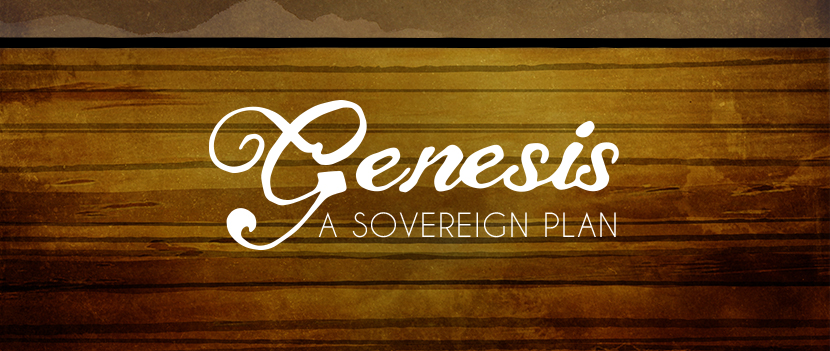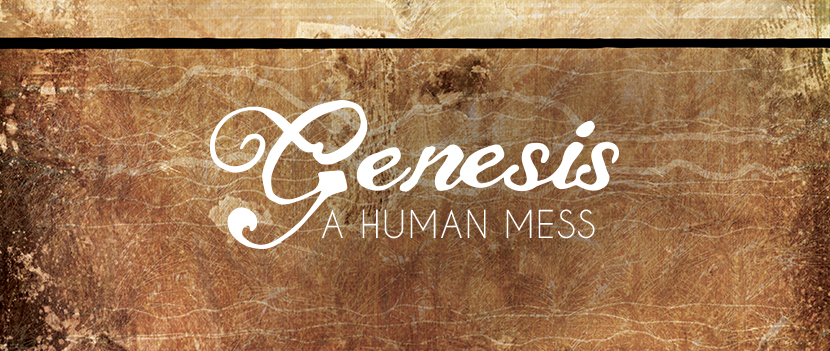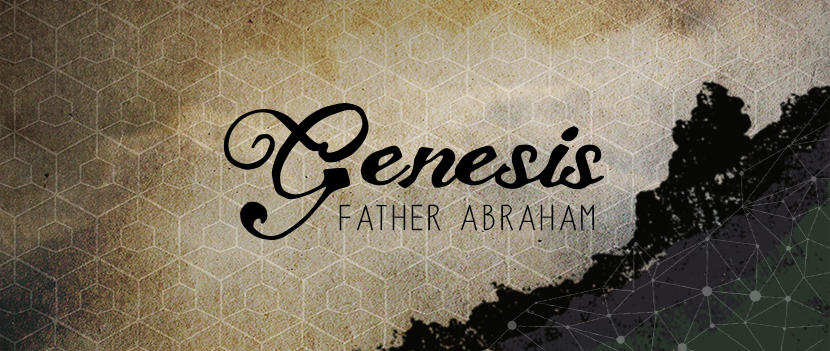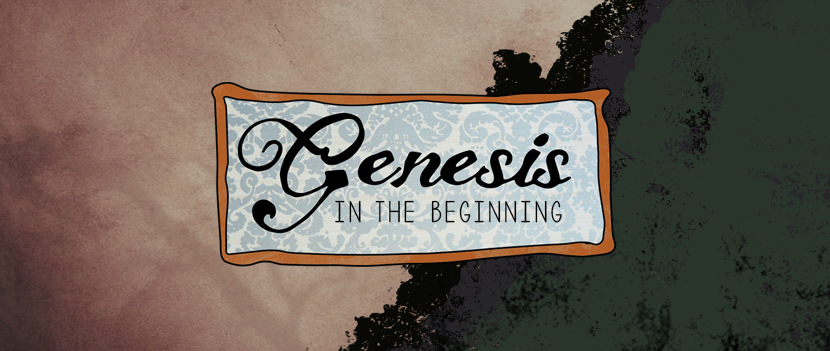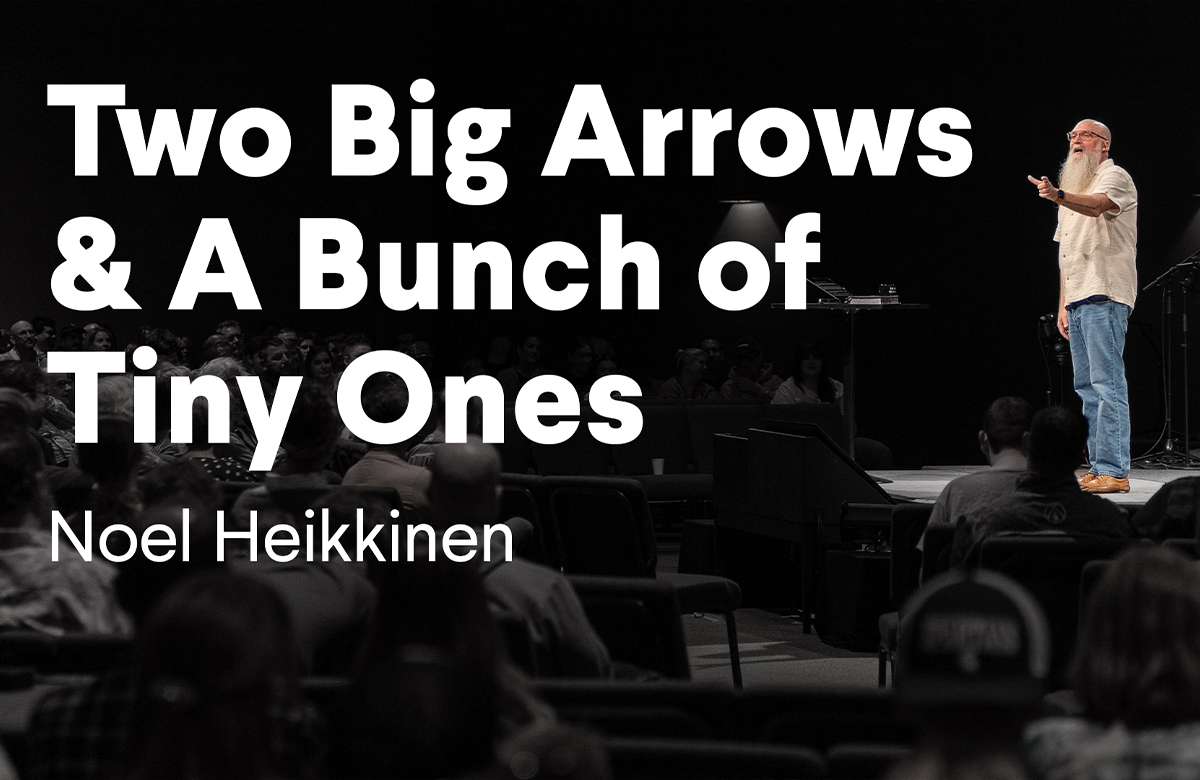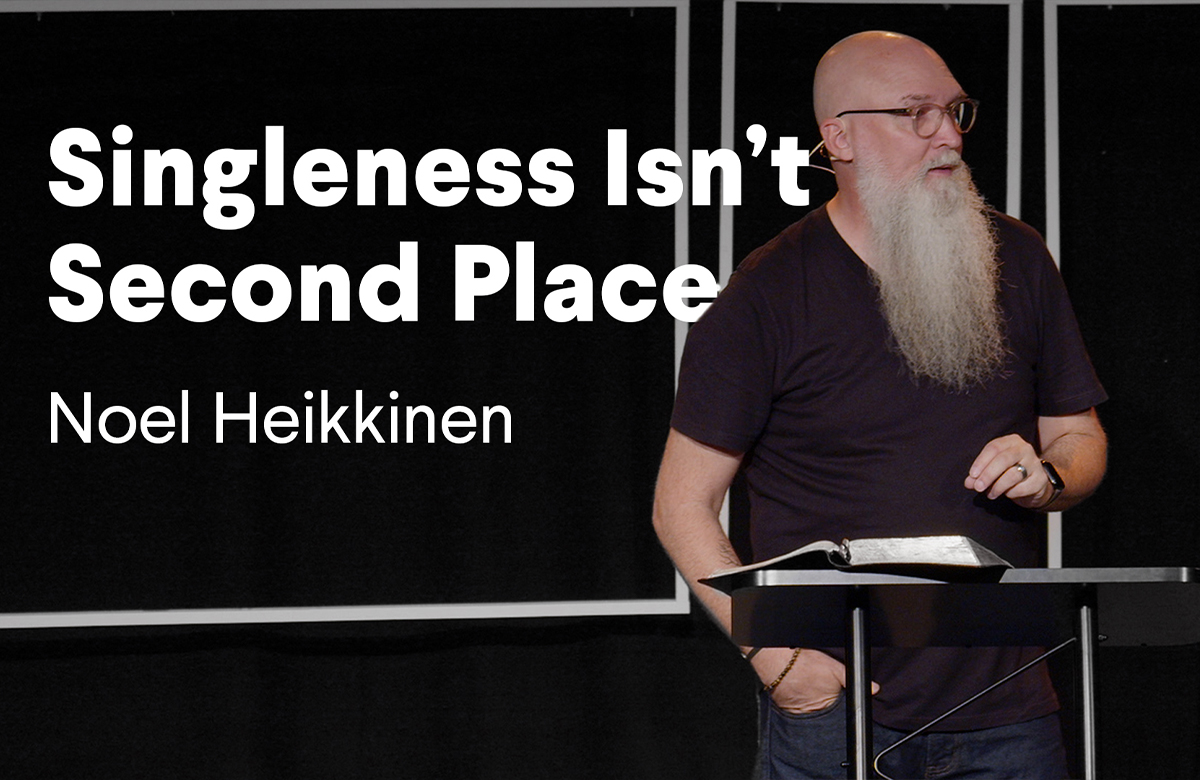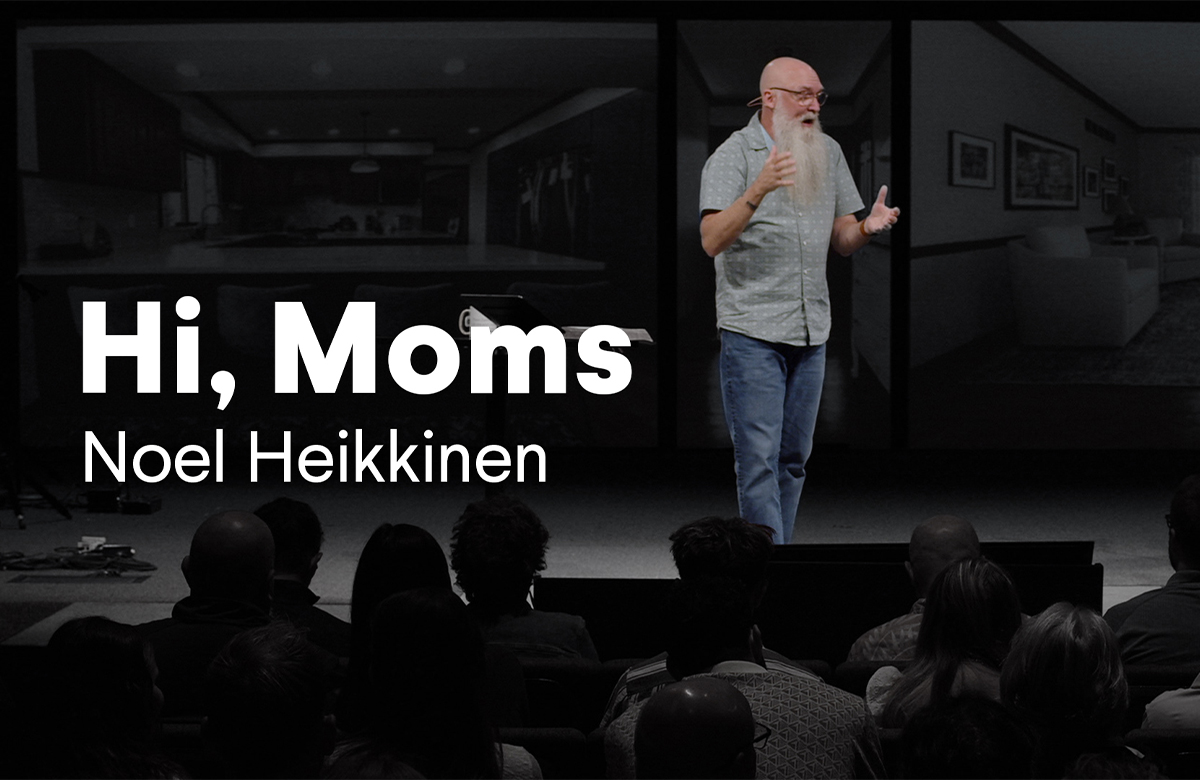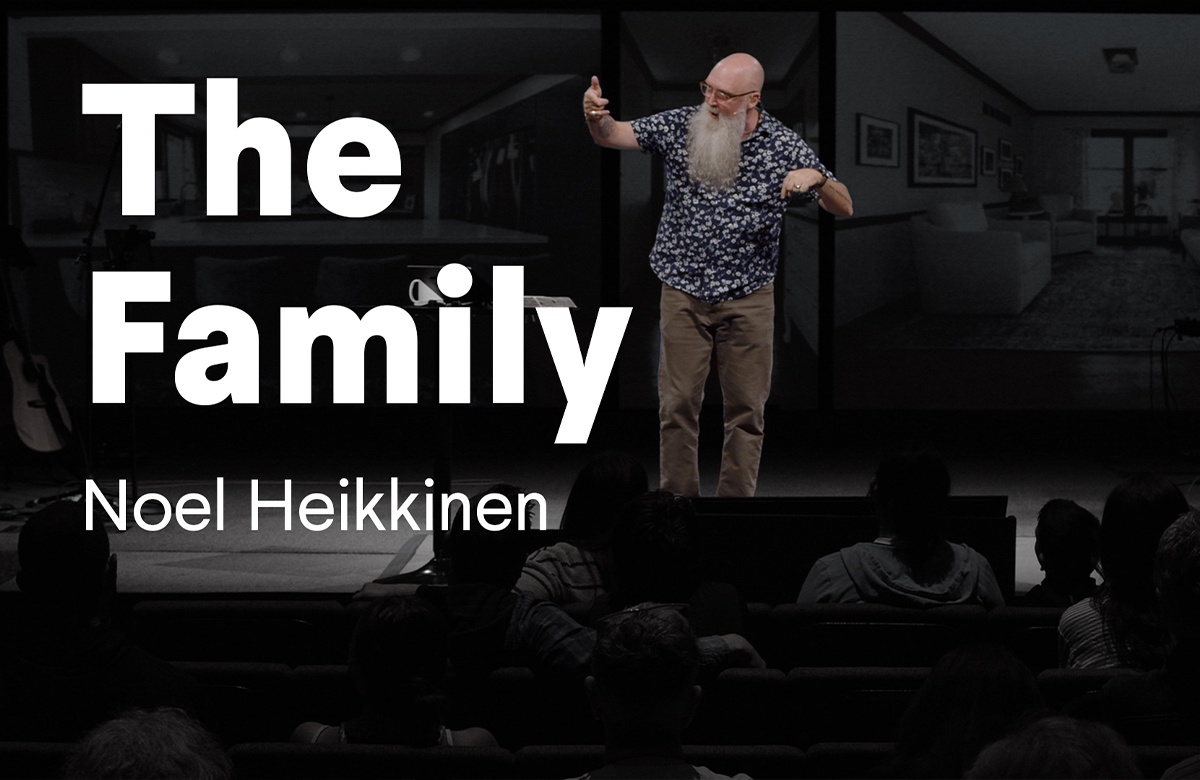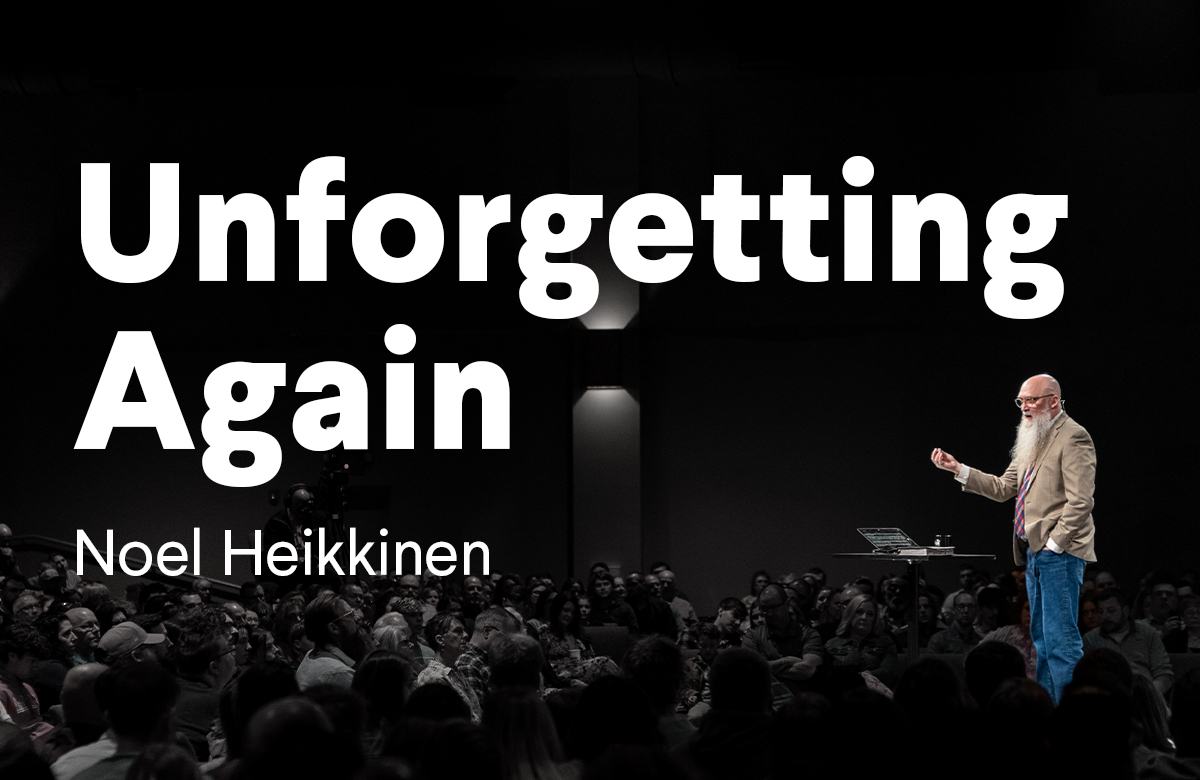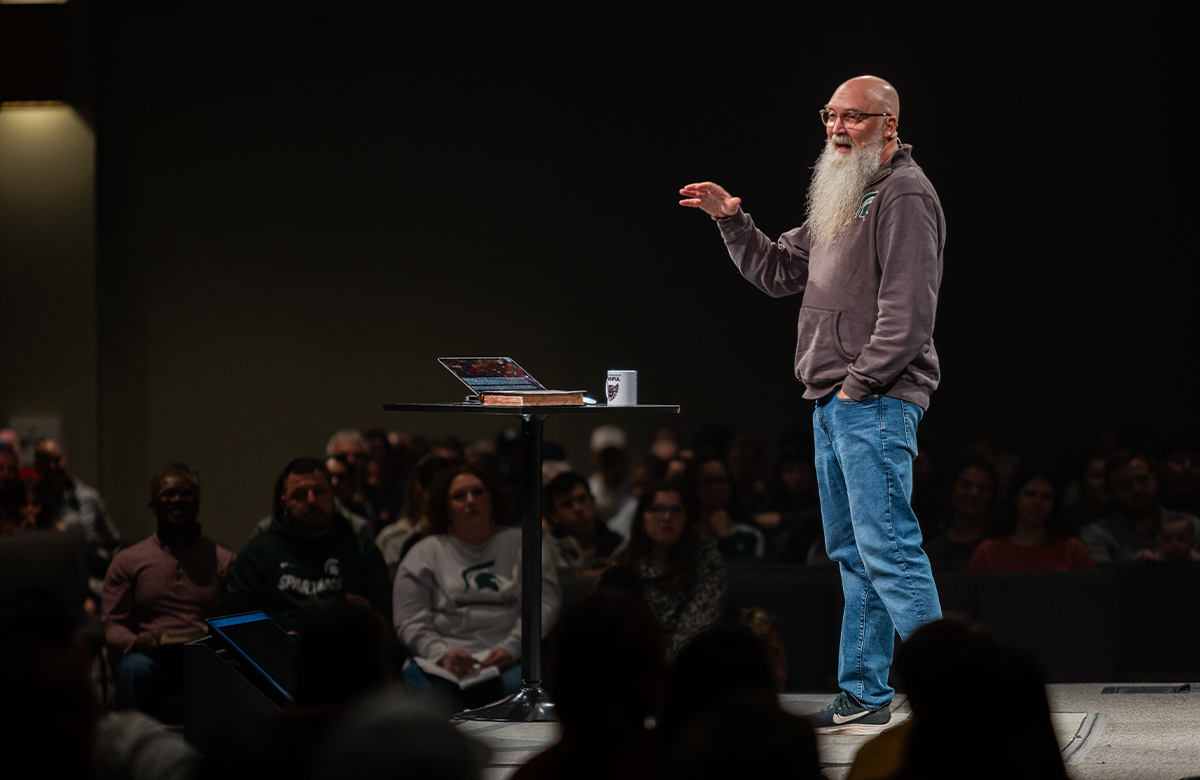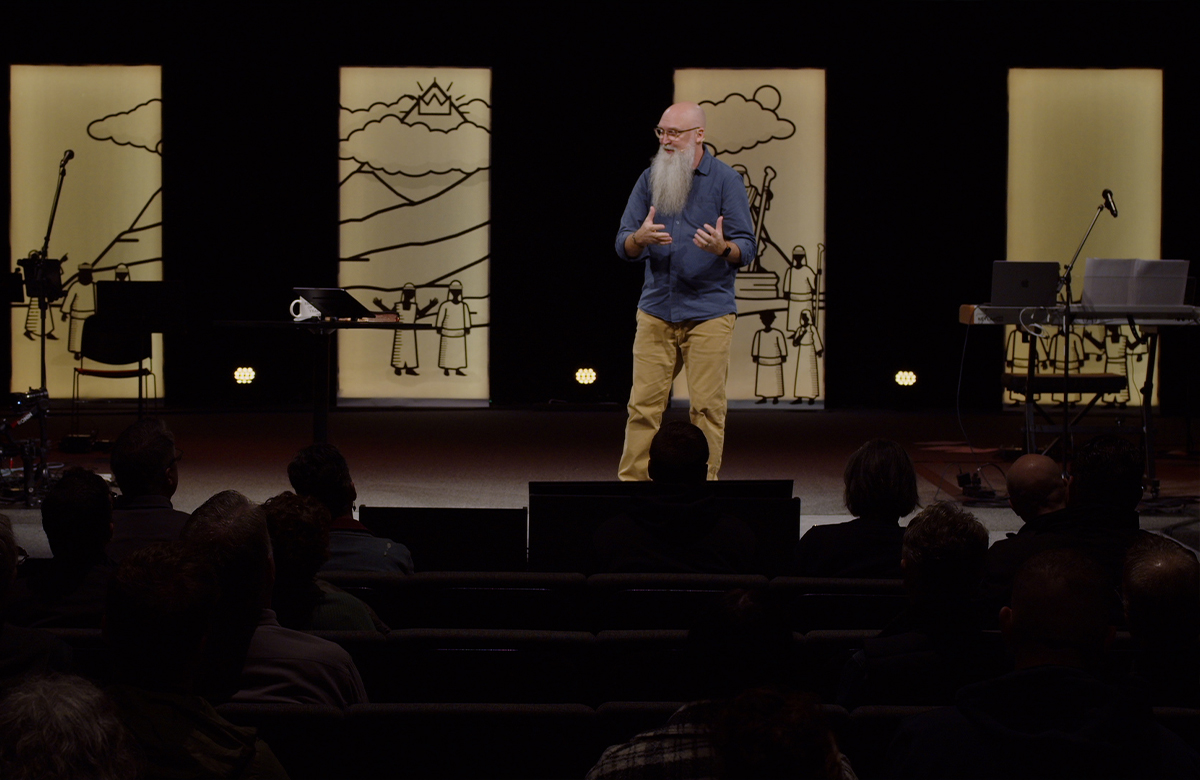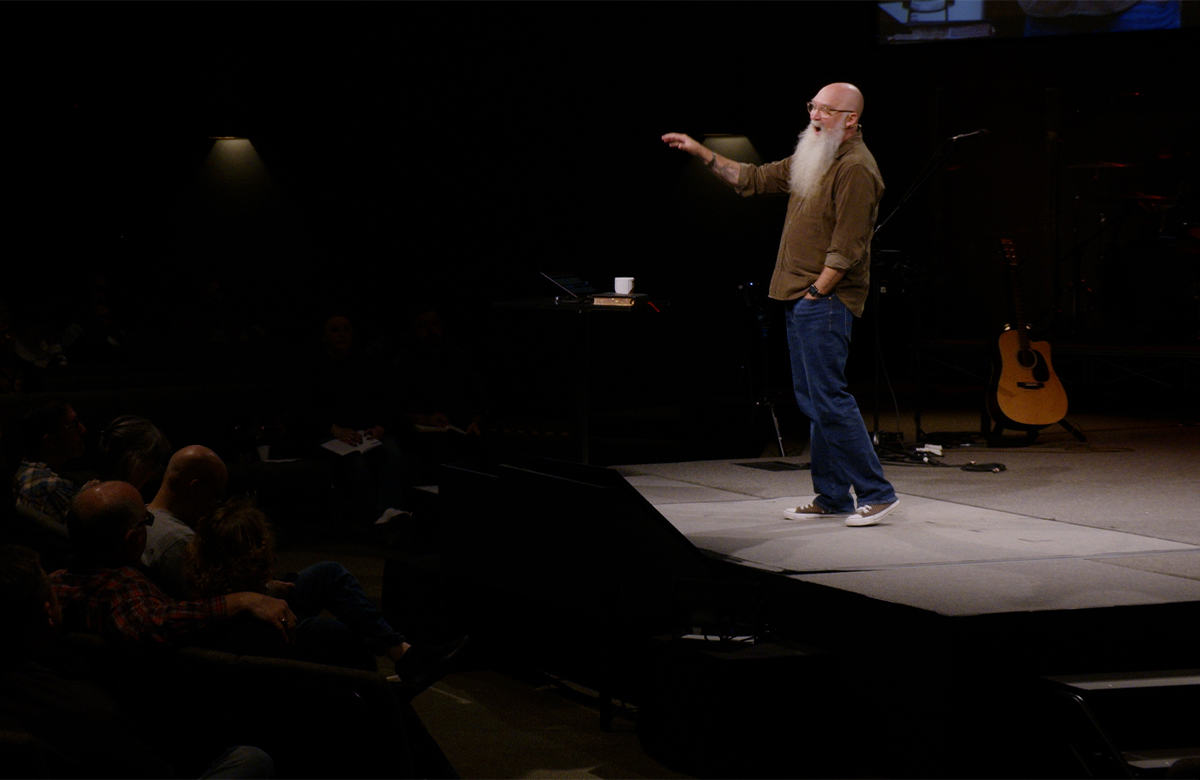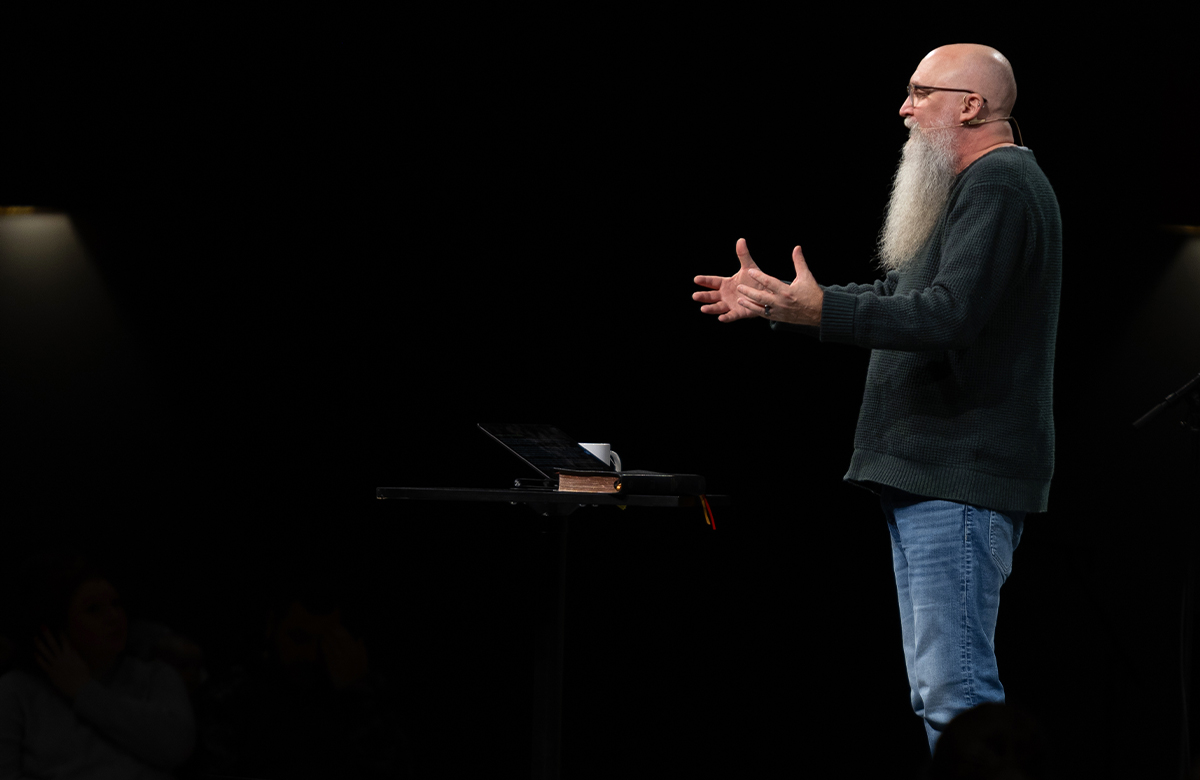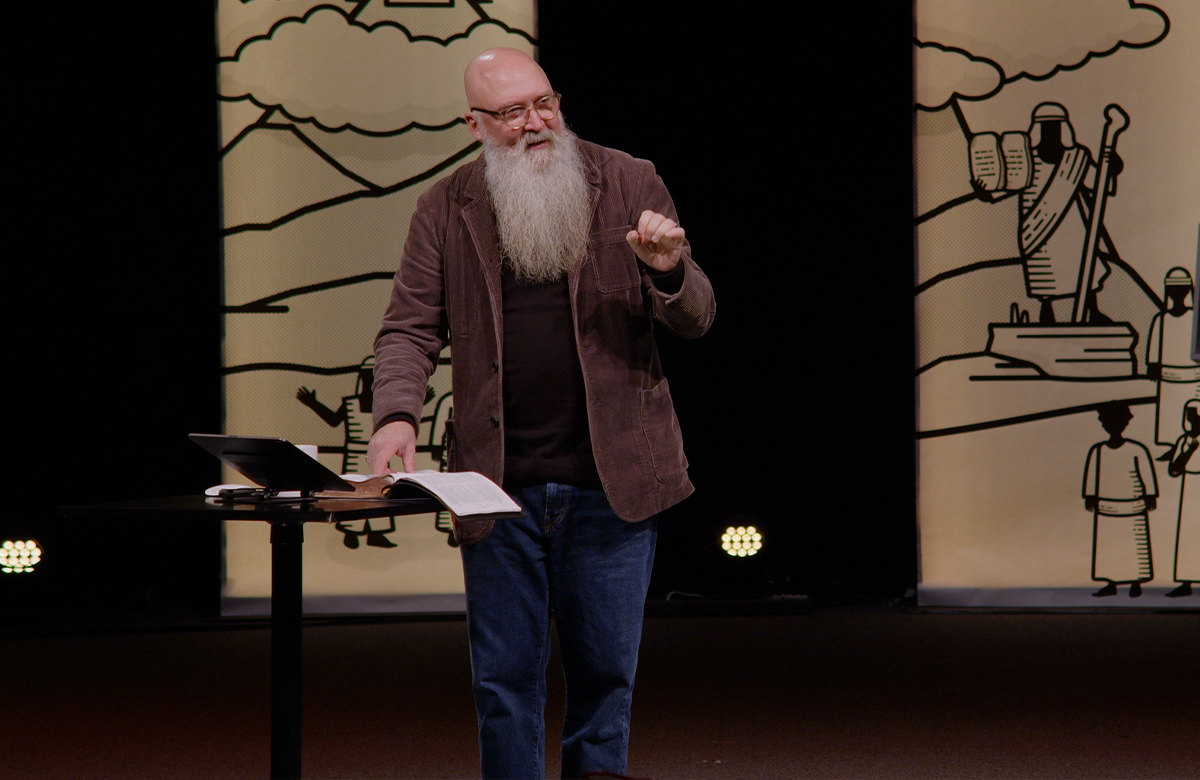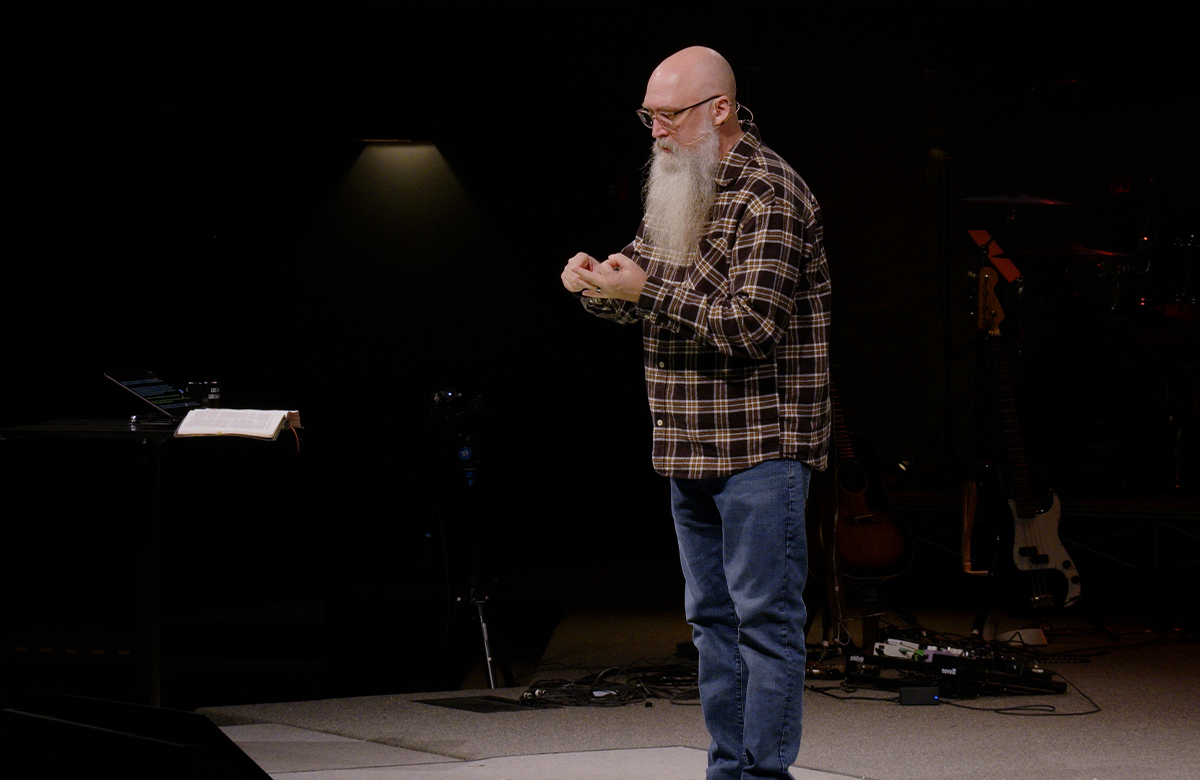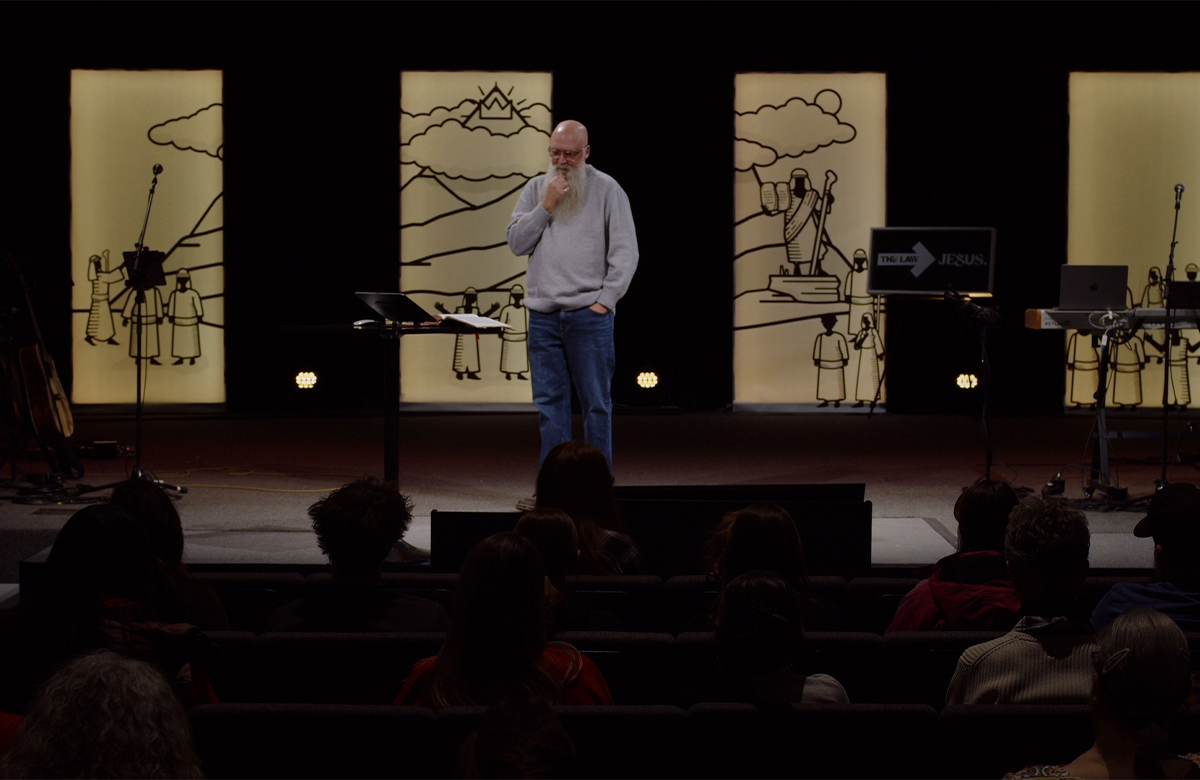03.23.14 | Genesis
Pharaoh’s Dreams
Noel Heikkinen
In both his highest and lowest moments, Joseph’s character remained the same. He trusted God, exercised his gifts for him, and gave him all the glory.
- Live Notes
Joseph was a guy who hit some great highs and some terrible lows in his life.
Some time after this, the cupbearer of the king of Egypt and his baker committed an offense against their lord the king of Egypt. And Pharaoh was angry with his two officers, the chief cupbearer and the chief baker, and he put them in custody in the house of the captain of the guard, in the prison where Joseph was confined. The captain of the guard appointed Joseph to be with them, and he attended them. They continued for some time in custody. (Genesis 40:1–4)
It’s weird to think about Cupbearer and Baker as “officers,” but they were high ranking because they were very close to the Pharaoh.
And one night they both dreamed—the cupbearer and the baker of the king of Egypt, who were confined in the prison—each his own dream, and each dream with its own interpretation. When Joseph came to them in the morning, he saw that they were troubled. So he asked Pharaoh’s officers who were with him in custody in his master’s house, “Why are your faces downcast today?” They said to him, “We have had dreams, and there is no one to interpret them.” And Joseph said to them, “Do not interpretations belong to God? Please tell them to me.” (Genesis 40:5–8)
In Egyptian culture, dreams were a very big deal, especially dreams that came in twos.
So the chief cupbearer told his dream to Joseph and said to him, “In my dream there was a vine before me, and on the vine there were three branches. As soon as it budded, its blossoms shot forth, and the clusters ripened into grapes. Pharaoh’s cup was in my hand, and I took the grapes and pressed them into Pharaoh’s cup and placed the cup in Pharaoh’s hand.” Then Joseph said to him, “This is its interpretation: the three branches are three days. In three days Pharaoh will lift up your head and restore you to your office, and you shall place Pharaoh’s cup in his hand as formerly, when you were his cupbearer. (Genesis 40:9–13)
Only remember me, when it is well with you, and please do me the kindness to mention me to Pharaoh, and so get me out of this house. For I was indeed stolen out of the land of the Hebrews, and here also I have done nothing that they should put me into the pit.” (Genesis 40:14–15)
When the chief baker saw that the interpretation was favorable, he said to Joseph, “I also had a dream: there were three cake baskets on my head, and in the uppermost basket there were all sorts of baked food for Pharaoh, but the birds were eating it out of the basket on my head.” And Joseph answered and said, “This is its interpretation: the three baskets are three days. In three days Pharaoh will lift up your head—from you!—and hang you on a tree. And the birds will eat the flesh from you.” (Genesis 40:16–19)
On the third day, which was Pharaoh’s birthday, he made a feast for all his servants and lifted up the head of the chief cupbearer and the head of the chief baker among his servants. He restored the chief cupbearer to his position, and he placed the cup in Pharaoh’s hand. But he hanged the chief baker, as Joseph had interpreted to them. Yet the chief cupbearer did not remember Joseph, but forgot him. (Genesis 40:20–23)
After two whole years, Pharaoh dreamed that he was standing by the Nile… (Genesis 41:1)
Nile was the most important feature in all of Egypt; it symbolized life, eternity, fertility, and power.
So in the morning his spirit was troubled, and he sent and called for all the magicians of Egypt and all its wise men. Pharaoh told them his dreams, but there was none who could interpret them to Pharaoh. (Genesis 41:8)
Then the chief cupbearer said to Pharaoh, “I remember my offenses today. When Pharaoh was angry with his servants and put me and the chief baker in custody in the house of the captain of the guard, we dreamed on the same night, he and I, each having a dream with its own interpretation. A young Hebrew was there with us, a servant of the captain of the guard. When we told him, he interpreted our dreams to us, giving an interpretation to each man according to his dream. And as he interpreted to us, so it came about. I was restored to my office, and the baker was hanged.” Then Pharaoh sent and called Joseph, and they quickly brought him out of the pit. And when he had shaved himself and changed his clothes, he came in before Pharaoh. (Genesis 41:9-14)
Joseph shaved and changes clothes to be heard, connect, gain respect, and not be offensive to the Pharaoh.
And Pharaoh said to Joseph, “I have had a dream, and there is no one who can interpret it. I have heard it said of you that when you hear a dream you can interpret it.” Joseph answered Pharaoh, “It is not in me; God will give Pharaoh a favorable answer.” (Genesis 41:15–16)
Joseph gains a hearing, then takes a firm stance for God.
Then Joseph said to Pharaoh, “The dreams of Pharaoh are one; God has revealed to Pharaoh what he is about to do. (Genesis 41:25)
And the doubling of Pharaoh’s dream means that the thing is fixed by God, and God will shortly bring it about. (Genesis 41:32)
Now therefore let Pharaoh select a discerning and wise man, and set him over the land of Egypt. Let Pharaoh proceed to appoint overseers over the land and take one-fifth of the produce of the land of Egypt during the seven plentiful years. And let them gather all the food of these good years that are coming and store up grain under the authority of Pharaoh for food in the cities, and let them keep it. That food shall be a reserve for the land against the seven years of famine that are to occur in the land of Egypt, so that the land may not perish through the famine.” (Genesis 41:33–36)
This proposal pleased Pharaoh and all his servants. And Pharaoh said to his servants, “Can we find a man like this, in whom is the Spirit of God?” Then Pharaoh said to Joseph, “Since God has shown you all this, there is none so discerning and wise as you are. You shall be over my house, and all my people shall order themselves as you command. Only as regards the throne will I be greater than you.” (Genesis 41:37–40)
Remarkable: Pharaoh acknowledges God.
Moreover, Pharaoh said to Joseph, “I am Pharaoh, and without your consent no one shall lift up hand or foot in all the land of Egypt.” And Pharaoh called Joseph’s name Zaphenath-paneah. And he gave him in marriage Asenath, the daughter of Potiphera priest of On. So Joseph went out over the land of Egypt. (Genesis 41:44–45)
God did exactly what he told Joseph he would do.
When all the land of Egypt was famished, the people cried to Pharaoh for bread. Pharaoh said to all the Egyptians, “Go to Joseph. What he says to you, do.”
So when the famine had spread over all the land, Joseph opened all the storehouses and sold to the Egyptians, for the famine was severe in the land of Egypt. Moreover, all the earth came to Egypt to Joseph to buy grain, because the famine was severe over all the earth.
When Jacob learned that there was grain for sale in Egypt, he said to his sons, “Why do you look at one another?” And he said, “Behold, I have heard that there is grain for sale in Egypt. Go down and buy grain for us there, that we may live and not die.” So ten of Joseph’s brothers went down to buy grain in Egypt. (Genesis 41:55–42:3)
Joseph trusted God, faithfully exercised his gifts, and gave the glory to God.
- More From This Series
- More From This Speaker


























